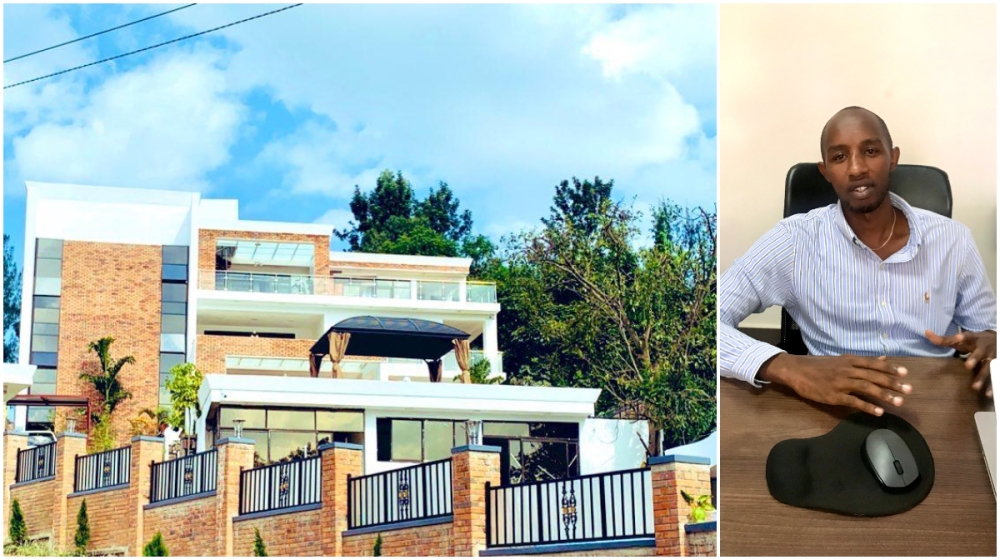

Civil engineering is not a field Martin Sezibera envisioned joining. As a child, he often used his mind to create things from anything he could get his hands on. The inspiration to pursue civil engineering was spurred by a cousin who excelled in physics, chemistry, and mathematics during O-Level in high school.
"From that time, I also took on the same combination and later opted for a course in civil engineering. While partaking in the final year project with a colleague, which was replacing cement with rice husk ash, as the cost of cement was high, we decided to continue with the project after graduation,” Sezibera, now a certified civil engineer who has planned and completed a number of building projects in Kigali, says.
Sezibera says that they both lacked the money to keep the project running, prompting them to research alternative means like more affordable construction materials, like interlocking blocks, as this didn’t require cement while constructing.
The civil engineer adds that when his colleague acquired a job, he was left with no option but to travel to Uganda to learn how interlocking blocks were made, and the specific machines needed for them, and carried two samples back home.
Though he was determined to start his company, Sezibera lacked capital so he applied for a job to put some money aside.
The 30-year-old entrepreneur explains that he was employed as Gasabo District’s civil engineer in October 2016 where he worked for two years.
"The position emanated with connections from people that needed my services. I, therefore, resigned, and luckily, one of my links connected me to Rwanda Energy Group (REG) where I passed the interview and acquired a job instantly as the maintenance planning engineer,” he says.


While there, the tasks turned routine and he needed something more challenging, so he called it quits after only eight months, and decided to take a bank loan to start his business in 2019.
The company called Sezibera General Contractors is located in Gisementi, and some of its responsibilities entail project planning, management, monitoring, ensuring construction site safety, and legal issues, costing, and so forth.
During his time in this field, he has realised that it’s hard to earn from the profession when you’re new as there are already experienced and more knowledgeable contractors who know the market and materials better.
Sezibera is of the view that there is a scarcity of enough skilled labour, and a few Technical Vocational Education and Training (TVET) schools.
ALSO READ: Civil engineer on easing availability of supplies through virtual platform
He emphasises that some contractors have insufficient skills in management and finance, among other skills that are necessary to operate, adding that one can excel and attract customers if they are good at communication with clients, if possible, installing cameras for them to follow up on their projects while away.
"Allowing customers to pay in as many installments as possible boosts their trust in a contractor, but mostly, respecting terms and conditions of the contract is professional,” he states.
Sezibera believes that a contractor should be able to advise a client in case of a better plan or if the architectural design is likely to cause safety issues.
The civil engineer looks forward to starting a training centre for casual labourers, and also enhancing green buildings in the country. Green building, also known as sustainable design, is defined as the practice of creating structures and using processes that are environmentally responsible and resource-efficient throughout a building's life cycle from siting to design, construction, operation, maintenance, renovation, and deconstruction.
Sezibera explains that green building improves and guards biodiversity and ecosystems, reduces waste streams, increases air and water quality, protects and restores natural resources, and boosts residents’ health and comfort, but also improves indoor air eminence.


